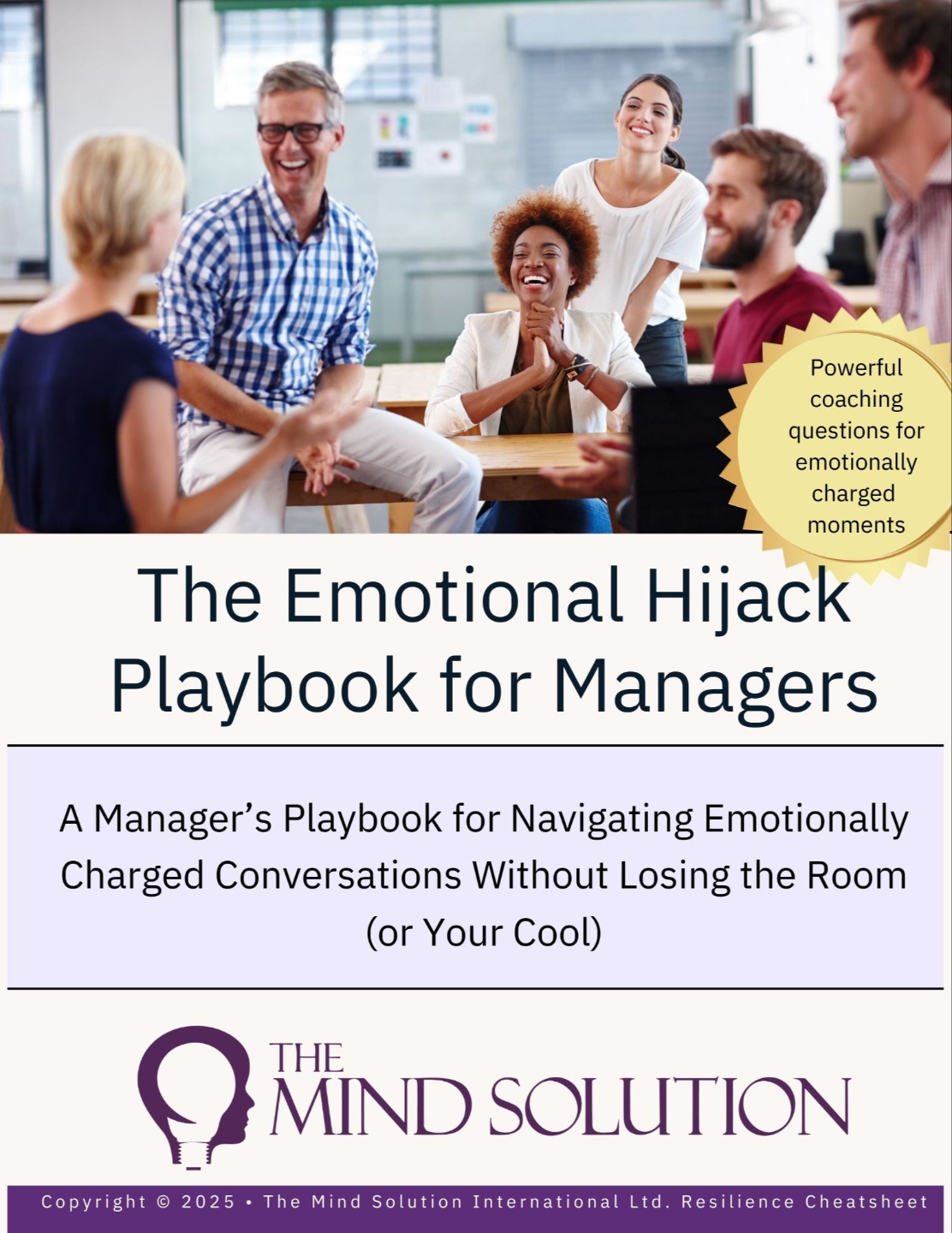Managing Mental Health in a Remote Environment - Key Advice for Managers
Jul 01, 2020
How to Manage Mental Health in a Remote or Hybrid Workplace
Managing mental health remotely requires managers to build connections without physical presence, enhance listening skills, and proactively check in with their teams.
The Emotional Hijack Playbook For Managers
A Manager’s Free Resource for Navigating Emotionally Charged Conversations Without Losing the Room (or Your Cool).
Perfect to use in your next one-to-one.







